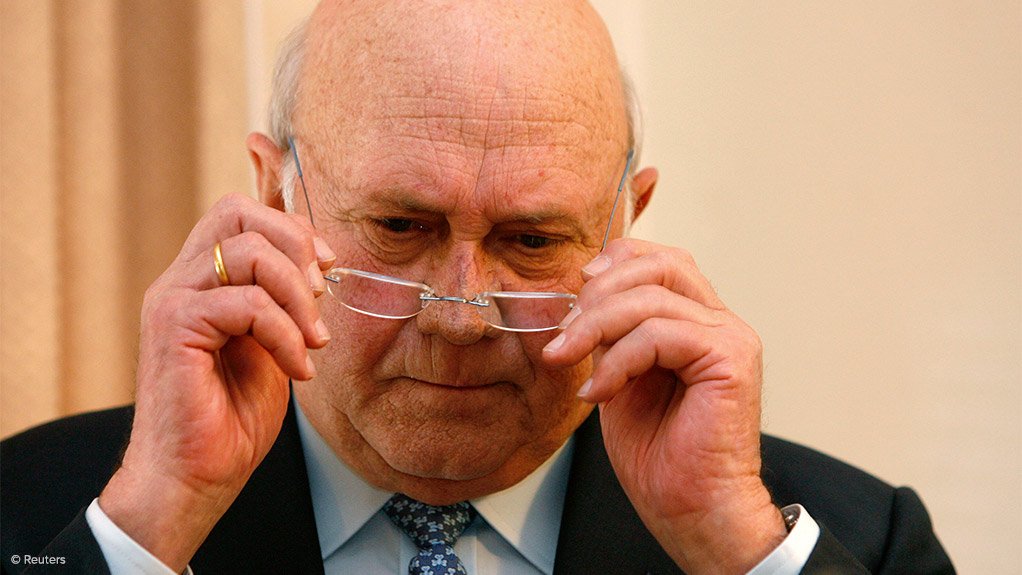/ MEDIA STATEMENT / The content on this page is not written by Polity.org.za, but is supplied by third parties. This content does not constitute news reporting by Polity.org.za.
In September 2023, South Africa witnessed a watershed moment as the National State Enterprises Bill made its debut in the National Assembly. This milestone bore the promise of revitalising not only the country's governance arena but, more importantly, its beleaguered state-owned enterprises (SOEs). However, this Bill's initial allure as a harbinger of reform is, but a mirage. Beyond the surface, it falls dramatically short, failing to address the monumental crises afflicting these SOEs. ESKOM, PRASA, and Denel, among most, if not all the others, have been plunged into a dire state of financial jeopardy due to cadre deployment, rampant corruption, abysmal mismanagement, and the absence of fair competition and business standards. While the Bill held the potential to remedy these ills, it, regrettably, neglects the critical areas that demanded attention. The viability of South Africa's SOEs, and thus its economic future, now teeters on a precipice.
The National State Enterprises Bill aims to address the long-standing issues in the governance of strategic SOEs in South Africa. It proposes a significant structural shift, signalling the dissolution of the Department of Public Enterprises, which currently holds sway over these entities. In its place would be a new state-owned holding company, the State Asset Management SOC Ltd, envisioned to manage the SOEs and their finances. Crucially, the State is designated as the sole shareholder of this holding company, consolidating its control over various state enterprises.
Critics have voiced their concerns, highlighting several critical issues with the Bill. One glaring concern is the Bill's lack of provisions for private sector involvement. Business Leadership South Africa (BLSA) CEO, Busisiwe Mavuso, remarked, "The exclusion of private sector involvement is a missed opportunity." The Bill's exclusive state shareholding stifles the potential for private sector participation or the exploration of public-private partnerships. By maintaining sole state ownership, the Bill restricts such opportunities and the benefits they could bring to SOEs.
Moreover, the Bill's failure to address the deep-rooted issues of corruption and state capture is a significant oversight. Ghaleb Cachalia, the Democratic Alliance's Public Enterprises spokesperson, points out, "The Bill's silence on anti-corruption measures is a significant omission." Without robust anti-corruption measures, the same issues that have plagued SOEs for years may still persist under the new governance structure.
The process of appointing the board and executive management team of the holding company raises further concerns. As articulated by Cachalia, "If these appointments are influenced by political considerations rather than being based on merit and expertise, the efficiency and proper governance of the SOEs may be compromised." The Bill should provide a transparent and unbiased process for selecting these individuals, emphasising merit and expertise over political connections. Centralising power in political appointments risks undermining effective governance and perpetuates the trend of state capture and corruption that have been a longstanding challenge for SOEs.
Looking beyond South Africa, various countries have adopted different models for managing state-owned enterprises. Some nations have successfully integrated private sector expertise and investment through public-private partnerships, leading to increased efficiency and financial success. These models demonstrate fundamental flaws in the National State Enterprises Bill.
For instance, in countries like Singapore, public-private partnerships have played a vital role in state enterprise management. These partnerships allow the government to leverage private sector resources, expertise, and capital while maintaining control and oversight. This model combines the strengths of both public and private sectors, fostering innovation and improving efficiency.
In contrast, the ANC's insistence on maintaining sole ownership of the holding company leaves little room for similar public-private collaborations. This rigid approach is described as a "disappointment" by Business Leadership South Africa's CEO. It is a missed opportunity to create pathways for private investment to flow into the SOE sector.
While one alternative involves placing SOEs under relevant government departments, historical experiences with SOEs have raised concerns about this approach. Instances of corruption, inefficiency, and mismanagement in government-run entities have left a legacy of doubt regarding the potential effectiveness of such a structure. These challenges call into question the wisdom of increased governmental control.
In summary, while the National State Enterprises Bill initially hints at the potential for transformation within South Africa's state-owned enterprises, a closer look reveals critical shortcomings. The Bill's concentration of power within the state, oversight of anti-corruption measures, and the influence of political considerations in board appointments raise valid concerns. As the ANC guides the nation towards this path, it is crucial not to overlook the potential benefits of decentralisation, collaboration with the private sector, and comprehensive reform within South Africa's SOEs. Seizing these opportunities is paramount, as they could profoundly impact the country's economic growth and the effectiveness of its governance. By drawing inspiration from successful international models and exploring diverse approaches to SOE management, South Africa can chart a more promising course towards a prosperous future.
Issued by FW de Klerk Foundation
EMAIL THIS ARTICLE SAVE THIS ARTICLE ARTICLE ENQUIRY
To subscribe email subscriptions@creamermedia.co.za or click here
To advertise email advertising@creamermedia.co.za or click here











